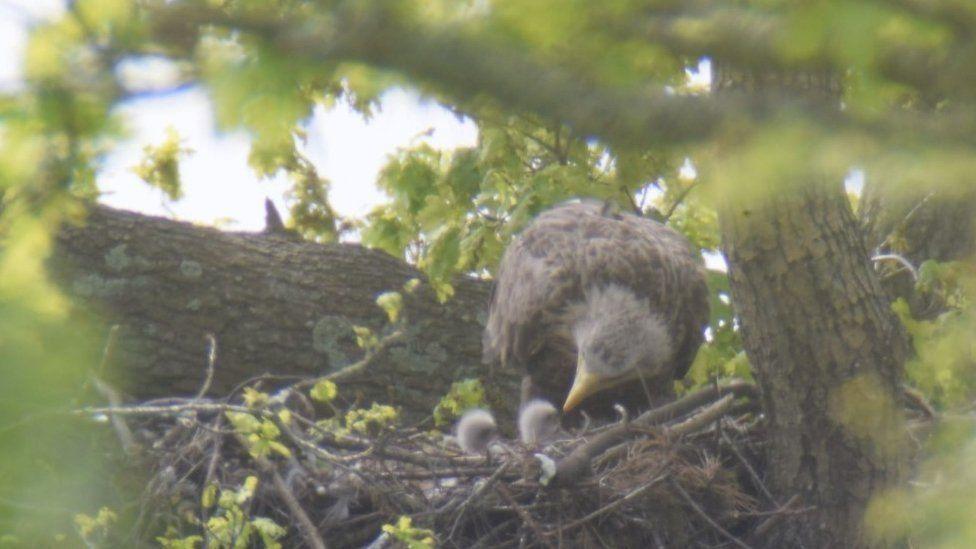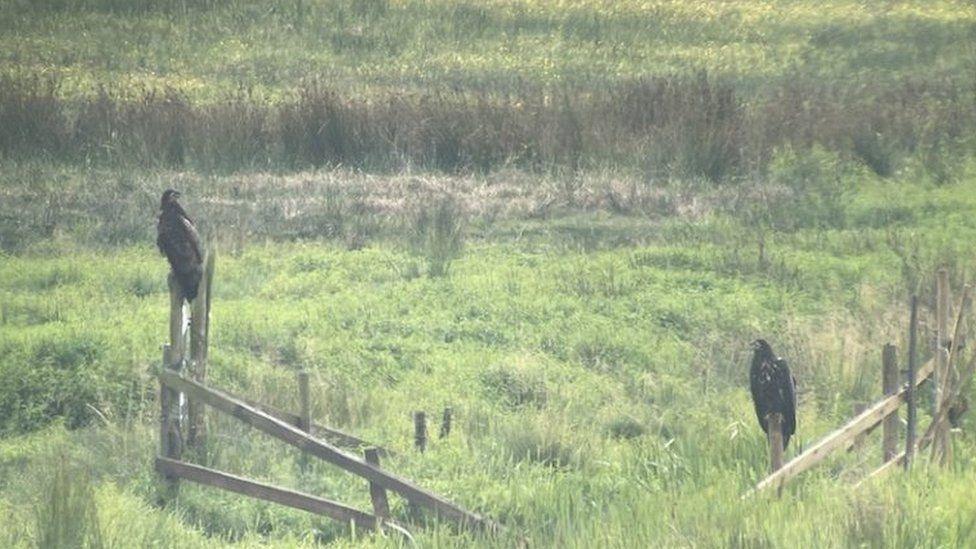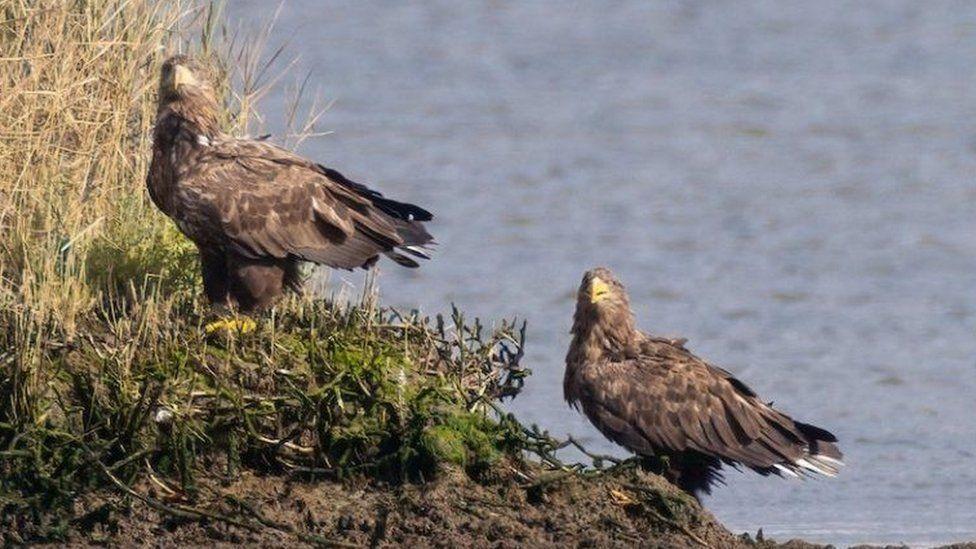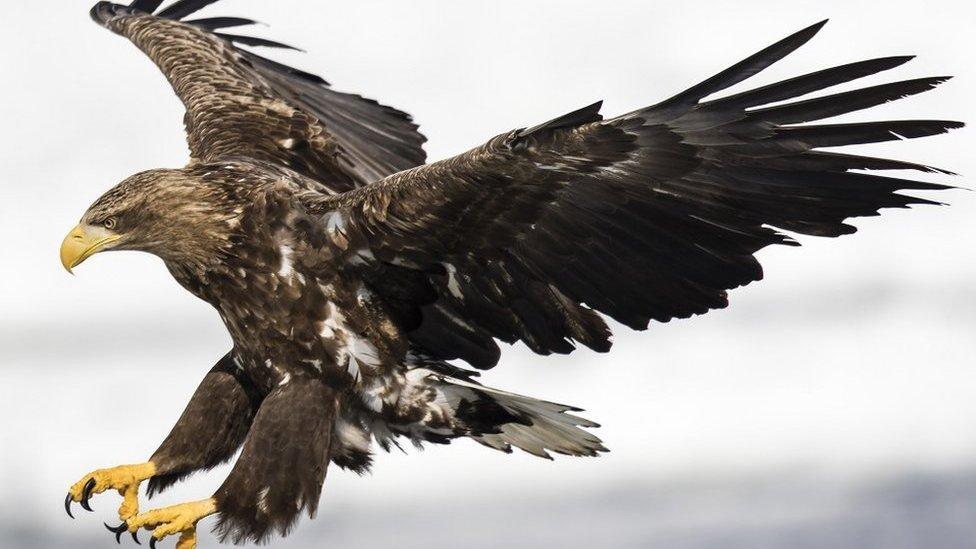Island's sea eagle project sees chicks fledge

The chicks, both males, are the offspring of two white-tailed eagles released on the Isle of Wight by the project in 2020
- Published
A pair of white-tailed eagle chicks have fledged from their nest in southern England.
The chicks, both males, are the offspring of two white-tailed eagles released by the the Roy Dennis Wildlife Foundation.
Set up in 2019 alongside Forestry England, the project involves bringing young birds from the wild in Scotland to the Isle of Wight.
Last year the same pair successfully raised a single male chick.

The two juvenile white-tailed eagles have been tagged so their travels can be tracked
It was the first time in 240 years a white-tailed eagle had hatched in the south of England.
Roy Dennis OBE, founder of the Roy Dennis Wildlife Foundation, said: "To see this second year of breeding success is really encouraging. It is still early days, but this is a very significant milestone."
The location of their nest has not been disclosed for their welfare and to prevent any disturbance to them either this year or if the birds return to breed at the same spot.
Eight birds were released this summer from the team’s base on the Isle of Wight.
To date, 37 young white-tailed eagles have been released on the island.
Forestry England said four pairs had now formed and settled together in southern England, including Poole Harbour.
It is hoped the other pairs will breed in future years.

It is hoped a pair who have become established in Poole Harbour will also breed
All the birds have satellite tags to track their travels.
A number have crossed the English Channel to Europe, and flown to northern Scotland.
Despite the birds normally fishing in shallow waters and along coastlines, one young eagle also ventured to landlocked Oxfordshire where it roosted with red kites.
White-tailed eagles are Britain's largest birds of prey with a wingspan of up to 2.5m (8.2ft) and were once widespread across England.
The species was lost due to human persecution, with the last pair breeding in southern England in 1780.
Follow BBC South on Facebook, external, X (Twitter), external, or Instagram, external. Send your story ideas to south.newsonline@bbc.co.uk, external or via WhatsApp on 0808 100 2240, external.
Related topics
- Published19 July 2023
